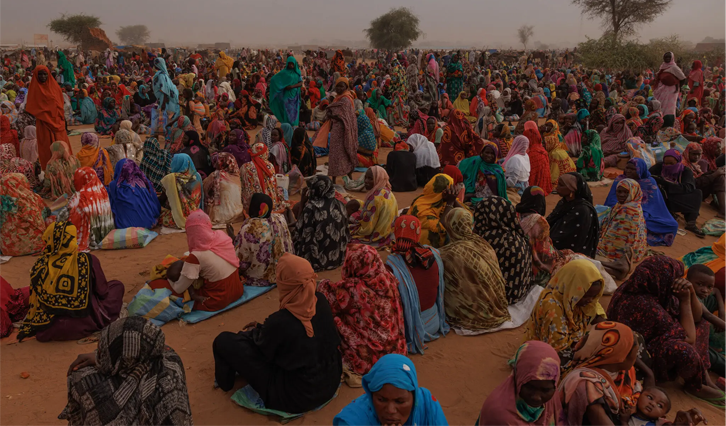When a landslide last month struck a mountainous region in western Sudan, it leveled a village and left as many as 1,000 people dead. In the race to help survivors, though, international aid agencies had to navigate administrative red tape that officials say has routinely been put in place by the Sudanese Armed Forces, the military group seen by some as Sudan’s de facto government after two years of devastating civil war. The group and its rivals have been accused of restricting aid flows into territories they do not control — the stricken region is in a rebel stronghold — and although some aid did eventually reach the area, the bureaucratic obstacles cost valuable time in the effort to save lives.
The delay is a stark example of how granting legitimacy to one side in a civil war has become a matter of life or death for Sudanese.
Now, the international community may be poised to entrench the Sudanese Armed Forces’ rule. After months of negotiations, the United States, Egypt, Saudi Arabia and the United Arab Emirates have proposed a road map for peace in Sudan. With further discussions expected to take place on the sidelines of the U.N. General Assembly this week, who gets a seat at that negotiating table could either pave the way for democratic rule or solidify the grip of the very military leaders who derailed Sudan’s democratic transition.
After the country rose up in 2018 and 2019 against 30 years of dictatorship, a transitional government was appointed to steer the country toward democracy. In October 2021, the Sudanese Armed Forces, the country’s army, and the Rapid Support Forces, a paramilitary group that emerged from a militia notorious for slaughtering people in Darfur, teamed up to topple the civilian government led by Prime Minister Abdalla Hamdok. But by April 2023, the two had turned on each other in a battle for dominance.
Each side has created a puppet government to push its agenda on the global stage: The Sudanese Armed Forces are propping up the so-called “Government of Hope,” whereas the Rapid Support Forces have created the “Government of Peace and Unity.” Neither of these administrations represents the Sudanese people, nor do they embody hope or peace. The belligerents behind these supposedly civilian governments are responsible for sabotaging the country’s democratic transition, stand accused of war crimes and continue to funnel the nation’s resources into private coffers.
Now, the Sudanese Armed Forces and the Rapid Support Forces are locked in a stalemate that has triggered what experts consider one of the world’s worst humanitarian disasters, displacing some 14 million people and pushing hundreds of thousands to the brink of starvation. Unlike in other civil wars, these two forces are primarily fighting to entrench their own financial and political interests, not those of any civilian bloc.
Broad swaths of civil society continue to support the country’s pro-democracy coalitions, one of the most prominent of which, Somoud, is headed by the ousted Mr. Hamdok. Although Somoud operates mainly from abroad, many of its constituent groups — political organizations, youth and women’s groups and trade unions — remain active inside the country, providing vital humanitarian aid and coordinating community efforts for peace.
Despite Somoud’s civilian backing, the Government of Hope has come to be seen by the international community as Sudan’s de facto government, given its backing by the armed forces and control of the organs of the state. In the past, the leader of the Sudanese Armed Forces, Gen. Abdel Fattah al-Burhan, has represented Sudan at the U.N. General Assembly. Because the United States imposed sanctions on General Burhan in January, this year, the Government of Hope’s civilian prime minister is likely to attend in his place. The Rapid Support Forces lacks widespread international credibility because of its conduct during the war: even though both parties stand accused of serious human rights violations, the Rapid Support Forces’ widespread and systematic attacks against civilians, often based on their ethnicity, have led to the United States designating it as a genocidal force.


